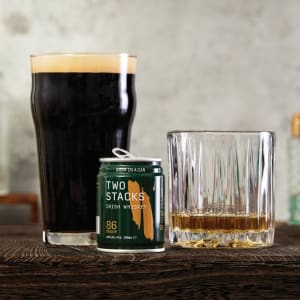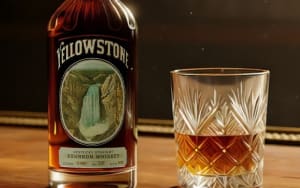The Nearest Green Distillery, home to the celebrated Uncle Nearest Premium Whiskey, is caught in a legal storm that’s got the whiskey world buzzing. Based in Shelbyville, Tennessee, this fast-rising star in American whiskey is facing a massive $100 million lawsuit from its primary lender, Farm Credit Mid-America (FCMA). The lawsuit, filed on July 28 in the U.S. District Court for the Eastern District of Tennessee, has raised eyebrows and sparked questions about the future of one of the most successful new brands in the spirits industry. But the founders, Fawn and Keith Weaver, aren’t backing down, and they’re ready to fight for their company’s legacy.
The Lawsuit: What’s It All About?
Farm Credit Mid-America, a Louisville-based agricultural lender, claims Uncle Nearest has defaulted on over $108 million in loans, including unpaid principal and interest. According to court documents, the distillery has been in default since January 2, 2024, with additional breaches stretching into July 2025. The loans in question include $65 million in revolving loans, $22 million in term loans, and $15 million in real estate lines of credit. FCMA alleges that Uncle Nearest failed to meet key financial obligations, such as maintaining a net worth of at least $100 million in 2024 and keeping a positive net income each month.
The lender’s accusations don’t stop there. FCMA claims Uncle Nearest misrepresented the value of whiskey barrels used as collateral, overstating their worth by $21 million. The distillery allegedly sold some of these barrels to pay off other debts, leaving FCMA’s collateral at risk. Additionally, the lawsuit points to the sale of millions in future revenue streams at discounted rates to multiple parties without informing the lender, further jeopardizing the loan agreements. To protect its interests, FCMA is pushing for a court-appointed receiver to take control of the distillery’s finances, real estate, and operations—a move that could temporarily strip the Weavers of their leadership roles.
The lawsuit also highlights a controversial real estate deal. In March 2023, FCMA provided a $2.3 million loan for Uncle Nearest to purchase a $2.225 million property on Martha’s Vineyard, which was pitched as a marketing opportunity for hosting events and renting to distributors. However, FCMA claims the property was bought through a separate entity, UN HOUSE MV LLC, and later mortgaged to another lender, Oaktree Funding Corp., in violation of the loan terms. This purchase has stirred additional scrutiny, with reports of noise complaints tied to the property.
The Weavers Fight Back
Fawn and Keith Weaver, the husband-and-wife team behind Uncle Nearest, aren’t taking the allegations lying down. In a response filed on August 3, they strongly denied FCMA’s claims, calling the lawsuit “demonstrably false.” The Weavers argue that the financial mess stems from fraudulent activity by their former chief financial officer, Mike Senzaki, who they say overstated the value of the whiskey barrel collateral by $21 million to secure a $24 million line of credit increase. Senzaki has since been fired, and the Weavers claim his actions are now under third-party investigation. They also assert that FCMA was aware of the fraud, pointing out that the lender’s CEO met with the lead investigator and confirmed the Weavers were unaware of the issue.
In a bold move, Fawn Weaver took to Instagram on August 4 to rally support for the brand, urging fans to join “Operation Clear the Shelves” by buying every bottle of Uncle Nearest whiskey available. “In a backdrop of industry decline and disarray, Uncle Nearest is the shining star,” she wrote, highlighting the brand’s growth in states like Texas and Georgia. Weaver’s post also hinted at ongoing negotiations with FCMA, suggesting that the lender’s lawsuit might be a strategic play in a larger financial chess game. “When you’re in the midst of high-stakes negotiations, sometimes, one of the best things you can do is let the other side play their hand first,” she wrote. “Then you respond, and it’s a doozy. Stay tuned.”
The Weavers are also pushing back against FCMA’s request for a receiver, arguing that it’s unnecessary and could harm the company’s operations. They claim FCMA’s financial officer and managing director were closely involved in overseeing the loans and worked directly with the former CFO, implying the lender shares some responsibility for the oversight failures.
The Rise of Uncle Nearest: A Whiskey Empire Built on Legacy
To understand the stakes of this lawsuit, it’s worth looking at how Uncle Nearest became a household name in American whiskey. Founded in 2016 by Fawn Weaver, the distillery honors Nathan “Nearest” Green, a formerly enslaved man who taught Jack Daniel the art of whiskey-making in the mid-1800s. Green’s story, long overlooked in Tennessee whiskey history, was brought to light through investigative reporting and became the cornerstone of the Uncle Nearest brand. The distillery, which opened its doors in Shelbyville in 2019, has grown into a 432-acre whiskey destination, often dubbed “Malt Disney World” for its tours, tasting rooms, and on-site barbecue restaurant.
Uncle Nearest Premium Whiskey has racked up over 675 awards since its 2017 launch, including 452 gold medals or higher and 75 Best in Class honors. In 2024 alone, it was named Tennessee Whiskey Distillery of the Year at the New York International Spirits Competition. The brand’s portfolio, which includes eight whiskeys and plans for vodka and cognac, is sold in all 50 states and 12 countries, available in over 25,000 stores, bars, hotels, and restaurants. In October 2022, Uncle Nearest surpassed $100 million in sales, and by May 2024, it hit a $1 billion valuation, making it the fastest-growing whiskey brand in U.S. history.
Fawn Weaver, a bestselling author and entrepreneur, has been the driving force behind this success. Despite facing challenges as a Black woman in the male-dominated whiskey industry, she built Uncle Nearest into a cultural and commercial juggernaut. The distillery’s 323-acre expansion in 2021, followed by an additional 53 acres along Highway 231, has allowed it to grow organic corn for its whiskeys, further cementing its “farm-to-bottle” ethos. The brand’s new Nearest Green Tennessee Whiskey, launched in October 2024, was designed for accessibility and mixability, broadening its appeal to new consumers.
What’s at Stake for Uncle Nearest?
The lawsuit comes at a pivotal moment for Uncle Nearest, which has become a symbol of innovation and inclusivity in the whiskey world. A court-appointed receiver could disrupt the distillery’s operations, potentially affecting its workforce, production schedules, and expansion plans. The brand’s reputation, built on years of awards and storytelling, could also take a hit if the legal battle drags on or paints the company in a negative light.
For whiskey fans, the uncertainty surrounding Uncle Nearest is a cause for concern. The distillery’s Shelbyville property has become a must-visit destination, drawing thousands of visitors for its tours and tastings. Any disruption to its operations could ripple through the local economy and the broader whiskey tourism industry in Tennessee. Moreover, the outcome of the lawsuit could set a precedent for other distilleries facing financial challenges, especially in a market where mounting debt and falling demand have hit Kentucky’s whiskey industry hard.
The Bigger Picture: A Tough Time for Whiskey
Uncle Nearest isn’t the only distillery facing legal and financial troubles. In Kentucky, distilleries like Luca Mariano and Garrard County have been hit with liens and lawsuits over unpaid debts, signaling broader challenges in the industry. Rising costs, supply chain issues, and shifting consumer preferences have put pressure on even the most successful brands. For Uncle Nearest, which has thrived on its underdog story and rapid growth, this lawsuit is a test of resilience.
The Weavers’ response suggests they’re confident in their ability to weather the storm. By blaming the former CFO and rallying consumer support, they’re framing the lawsuit as a bump in the road rather than a fatal blow. Fawn Weaver’s “Operation Clear the Shelves” campaign is a savvy move to boost sales and demonstrate the brand’s strength, potentially giving Uncle Nearest the financial cushion it needs to negotiate with FCMA or fight the lawsuit in court.
What’s Next for Uncle Nearest?
As the legal battle unfolds, all eyes are on the August 7 hearing in Chattanooga, where Judge Charles Atchley will consider FCMA’s motion to appoint a receiver. The outcome of this hearing could determine whether Uncle Nearest remains under the Weavers’ control or faces a period of external oversight. For now, the distillery continues to operate, with its tours, tastings, and whiskey production running as usual.
For whiskey enthusiasts, Uncle Nearest remains a brand worth watching. Its story—rooted in history, craftsmanship, and perseverance—resonates with those who value a good pour and a great tale. Whether it’s sipping a dram of Uncle Nearest 1884 Small Batch or visiting the Shelbyville distillery, fans can show their support by keeping the brand’s legacy alive. As Fawn Weaver put it, “Don’t blink.” This fight is far from over, and Uncle Nearest is ready to play its hand.




